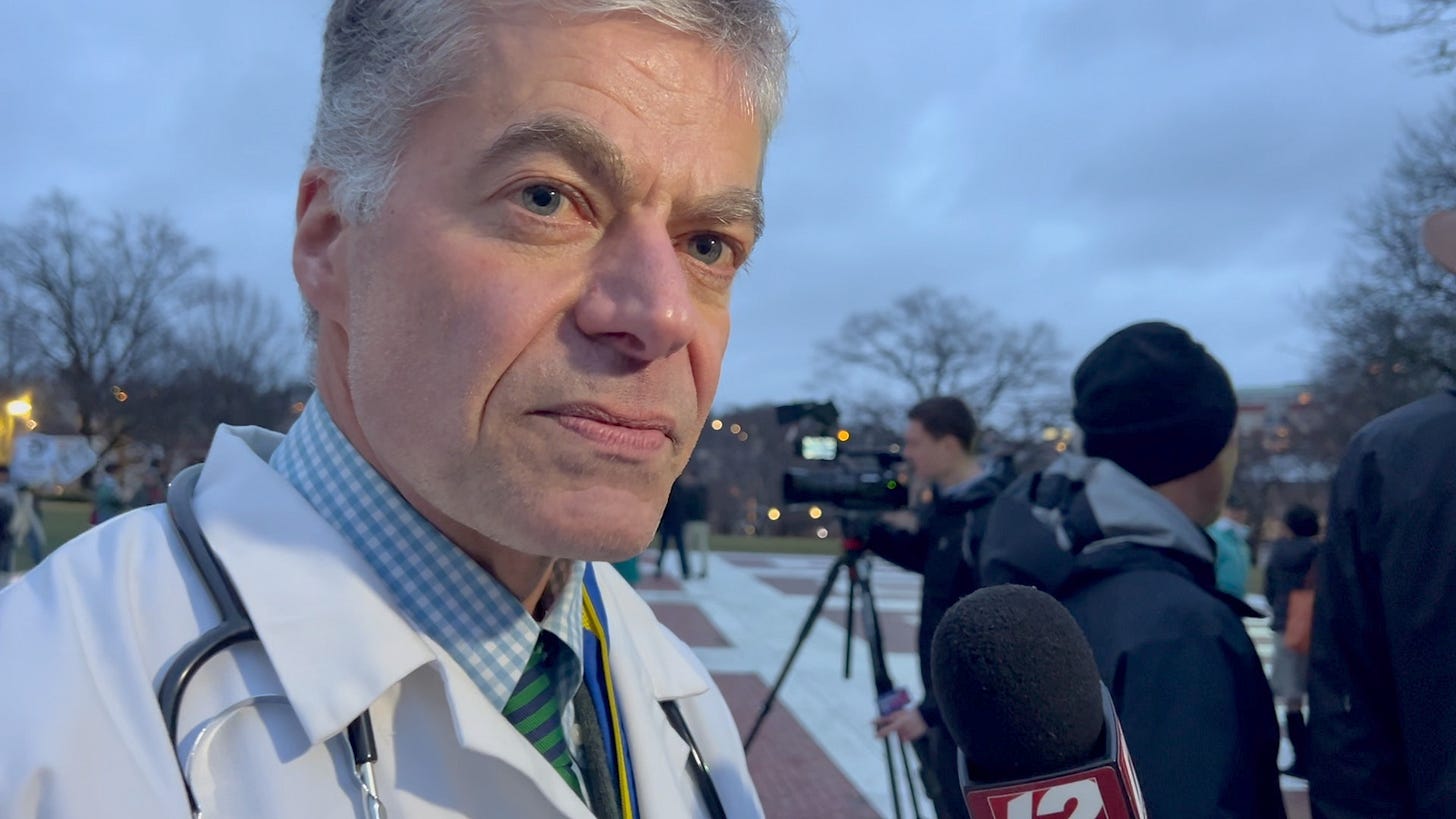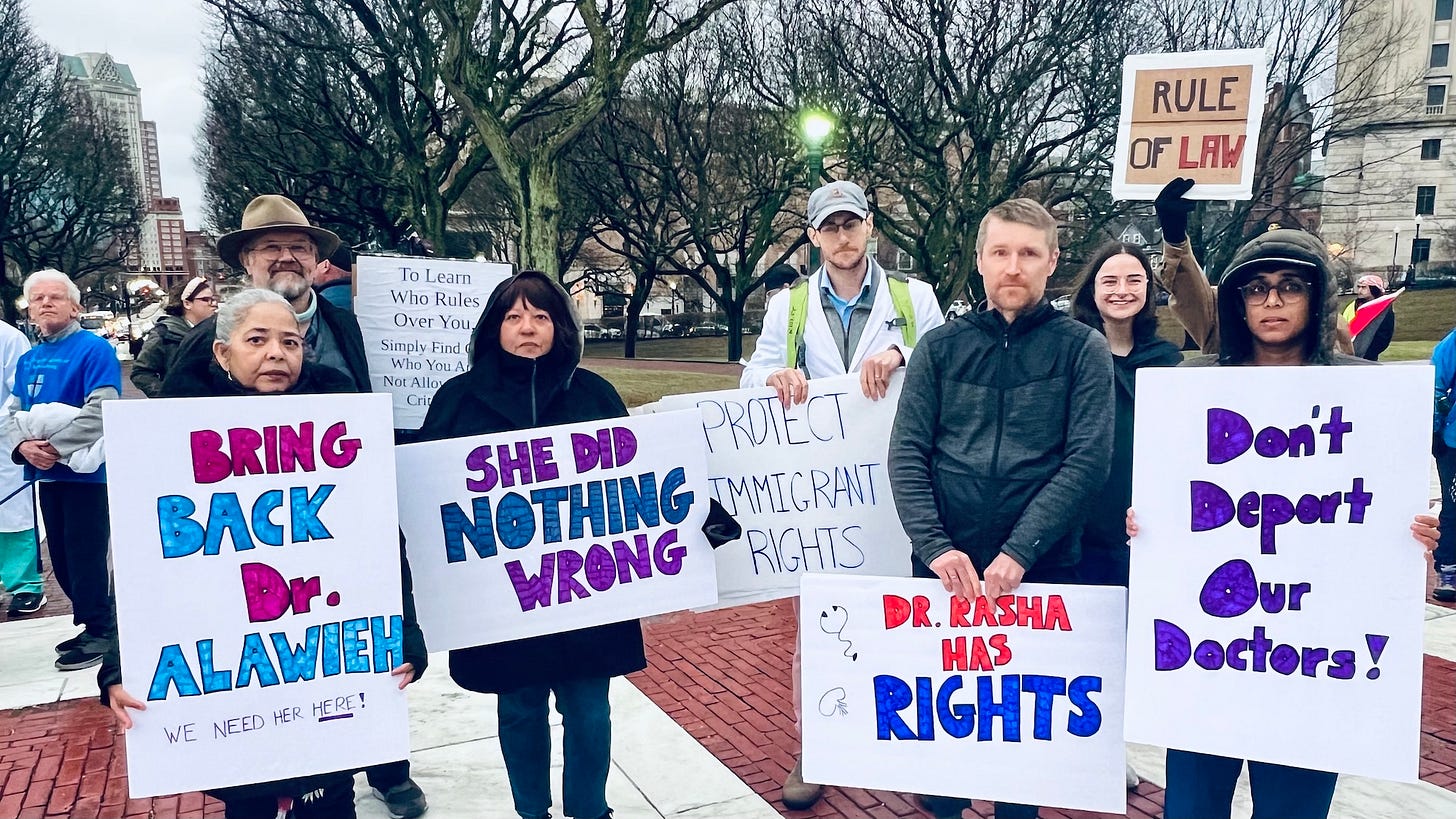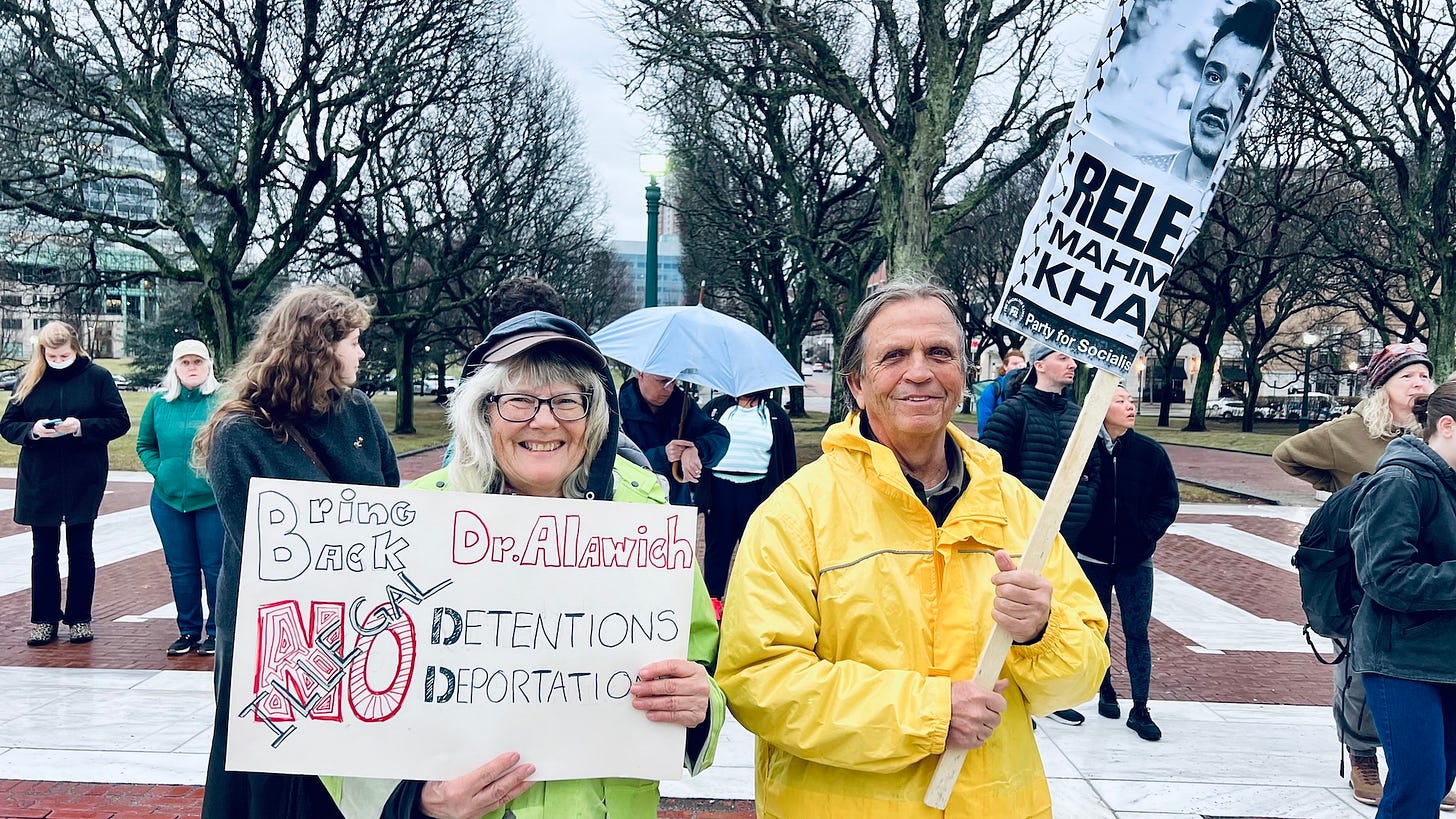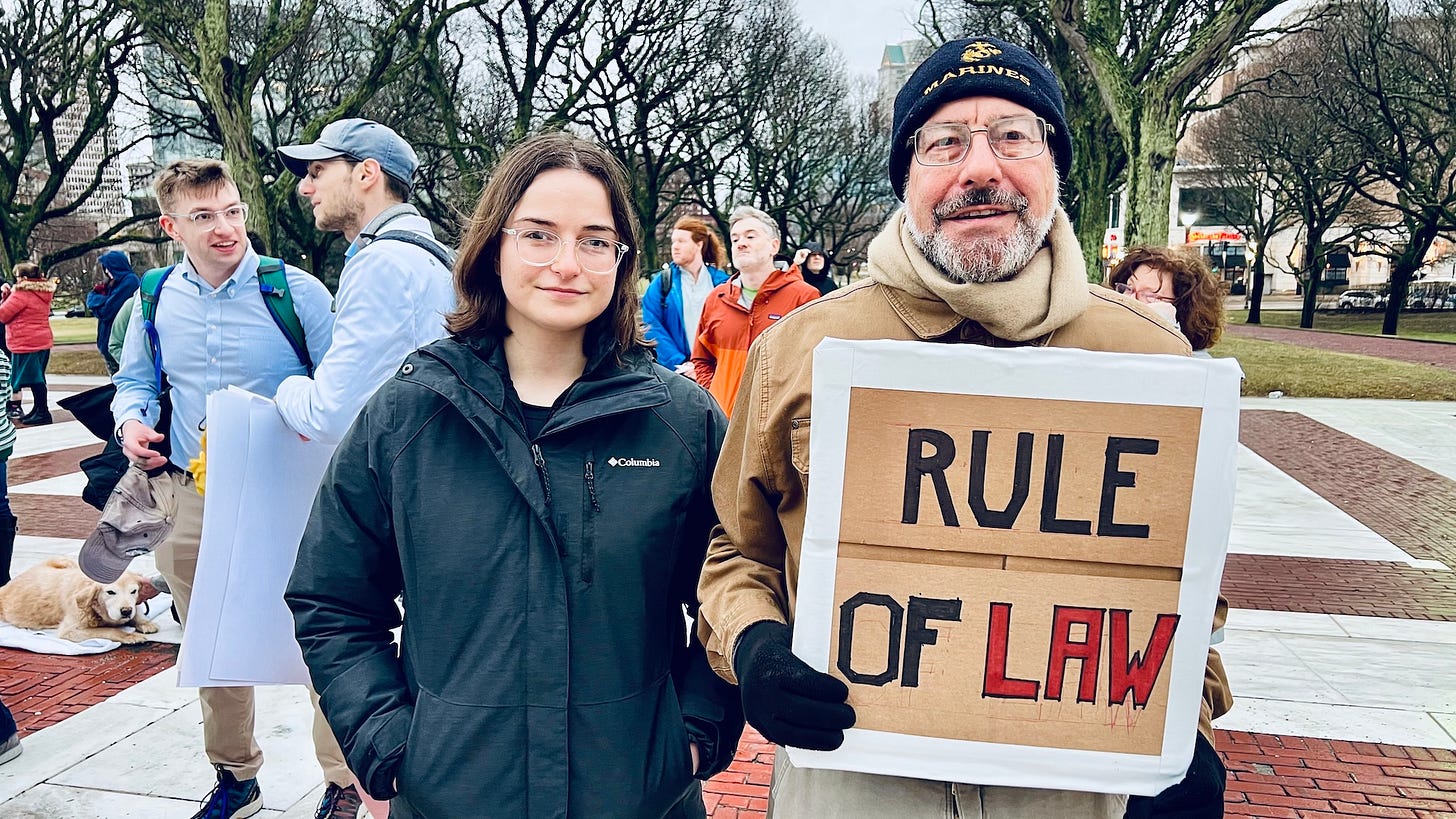The deportation of Dr. Rasha Alawieh leaves a big hole in Rhode Island medical care
"She works in the Division of Organ Transplant. There are three medical doctors who do her work, and the other two doctors are going to be working hard to make up for the loss of Rasha."
[To my embarrassment, this article needed to be corrected. Somehow, I missed a spellcheck error that indicated Dr. Rasha Alawieh had died. She is very much alive, and I regret the error.]
Dr. Rasha Alawieh worked in the Division of Organ Transplantation at Brown University. The Department of Homeland Security denied her re-entry to the United States. It deported her to Lebanon despite her having an H-1B visa and a court order temporarily blocking her expulsion.
[From Amanda McGregor (she/her), Deputy Director for News and Editorial Development, Office of University Communications at Brown University: Will you please amend an inaccuracy … which states that Dr. Rasha Alawieh works in the Division of Organ Transplantation at Brown University? Brown has no such division. Dr. Alawieh works at Brown Medicine, a separate nonprofit medical practice within Brown Physicians Inc.; Dr. Alawieh is an employee of Brown Medicine (the separate nonprofit) with an appointment to Brown’s medical school.]
I spoke to her colleague, Dr. Paul Morrissey, at a rally held for her on Monday evening at the Rhode Island State House.
Reporter: Did you know Dr. Rasha Alawieh yourself?
Dr. Paul Morrissey: I worked every day with Rasha for the past year. Rasha is a trusted and valued colleague.
Reporter: What was your reaction when you heard the news about this?
Dr. Paul Morrissey: Completely shocked about it. I would’ve never had any clue that anything like this would happen to her.
Reporter: Why are you out here today? What’s your message?
Dr. Paul Morrissey: We are here to support Rasha. We are here to support sensible border control. We’re here to support a colleague who has done nothing but give of herself on behalf of American citizens. She’s treated thousands of patients over the six years she’s been here. She’s done nothing but exceptional work all the time in the hospital.
Reporter: That’s the message we’ve heard from other colleagues here tonight: that she was a pivotal part of the department she worked at, and they want her back.
Dr. Paul Morrissey: We do. She’s very talented. Her heart is in the right place in terms of patient care, and I hope that she’ll be able to come back and join us.
Reporter: Today, a statement came out from the Department of Homeland Security, saying that she had some photos on her phone. What’s your response to that?
Dr. Paul Morrissey: I’m unaware of what she did in Lebanon besides visiting family, so I can’t comment on it in any substantial way. What’s on people’s phones should not necessarily adjudicate what happens in their lives.
Steve Ahlquist: How does Dr. Alawieh’s absence affect medical care in Rhode Island?
Dr. Paul Morrissey: She works in the Division of Organ Transplant. Three medical doctors do her work, and the other two will work hard to compensate for Rasha’s loss. It’s a very busy division. We take care of over 800 patients in Rhode Island, and she will be deeply missed. Her absense will have a strong and negative impact on our division.
Steve Ahlquist: And we already have a significant shortage of doctors in Rhode Island as it is...
Dr. Paul Morrissey: That is correct.
.









In an earlier version of this piece, a line seemed to indicate that Dr. Rasha Alawieh had died. This was [I think] a spellcheck error, and I thank the people who caught it and notified me. It has been corrected.
How did they gain access to her phone? My guess, and it’s just a guess, is that customs demanded access to it as a condition of entry. They saw what they saw and officially denied her entry. If that is the case, it will now be five years before she can again try ti recenter the US. What I am saying really is that I would like to know the legalities. Due process is a fundamental right.